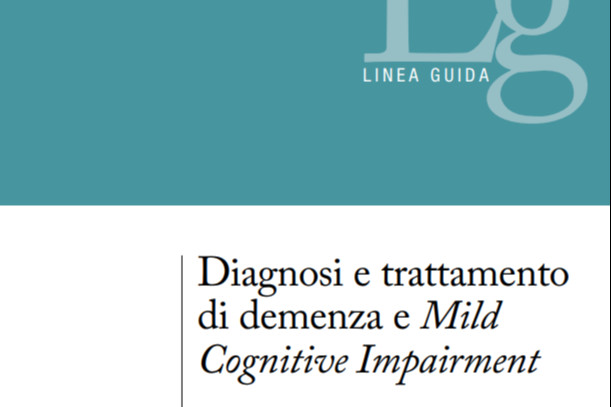Diagnosis and Treatment of Dementia and Mild Cognitive Impairment -Italian guidelines

The Guideline for the diagnosis and treatment of dementia and Mild Cognitive Impairment (MCI) was included among the specific objectives of the Italian Fund for Alzheimer's and Other Dementias (IFAD), which also defined its scope.
The Strategic Committee of the National Guidelines System (Sistema Nazionale Linee Guida, SNLG), established within the Ministerial Decree 27.2.2018, identified dementia as a priority issue for the development of the Guidelines (GL). In Italy, around two million people have dementia or some type of mild cognitive decline, with around four million of their family members caring for them. Considering the relevance of the topic, the Ministry of Health, as part of the IFAD, entrusted the National Institute of Health (Isituto Superiore di Sanità, ISS) with developing a GL on the diagnosis and treatment of dementia and MCI, within the National System Guidelines (SNLG), based on currently available evidence and both national and international best practices.
*Of note, national guidelines submitted by Governmental Authorities are not subjected to external peer review and do not necessarily represent the views of WHO.
The Strategic Committee of the National Guidelines System (Sistema Nazionale Linee Guida, SNLG), established within the Ministerial Decree 27.2.2018, identified dementia as a priority issue for the development of the Guidelines (GL). In Italy, around two million people have dementia or some type of mild cognitive decline, with around four million of their family members caring for them. Considering the relevance of the topic, the Ministry of Health, as part of the IFAD, entrusted the National Institute of Health (Isituto Superiore di Sanità, ISS) with developing a GL on the diagnosis and treatment of dementia and MCI, within the National System Guidelines (SNLG), based on currently available evidence and both national and international best practices.
*Of note, national guidelines submitted by Governmental Authorities are not subjected to external peer review and do not necessarily represent the views of WHO.
The primary objective of the present GL was to provide recommendations based on the best and most updated evidence aimed at facilitating and informing the timely diagnosis, and at ensuring the availability and appropriateness of a coordinated care process and of the best available treatments, minimizing the inappropriateness and variability of clinical practices. The GL had the specific objective of indicating the most adequate, appropriate, effective, efficient, and useful clinical practices for the management of dementia and MCI. GLs are, in fact, defined as documents providing an ideal care pathway based on both Evidence Based Medicine (EBM) and a structured cost-benefit analysis for the National Health System (NHS). This care pathway should be considered as a reference by regional and local healthcare services and policymakers, who, taking into account their peculiarities, should base the definition of their integrated care pathways (ICPs) on the indications provided by the GL and its care pathway
Submit review
Please register or log in to submit a review
